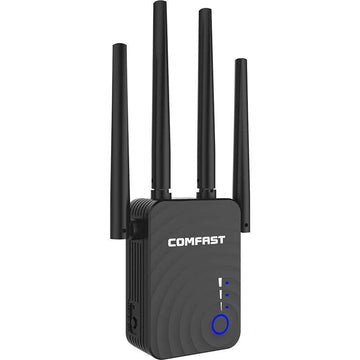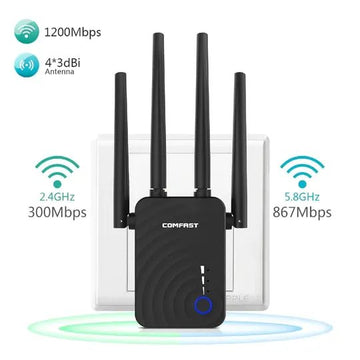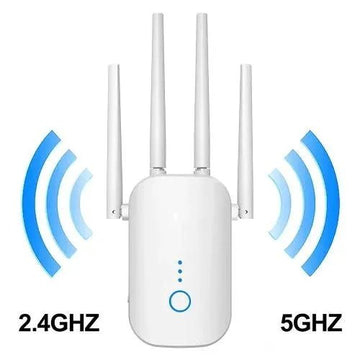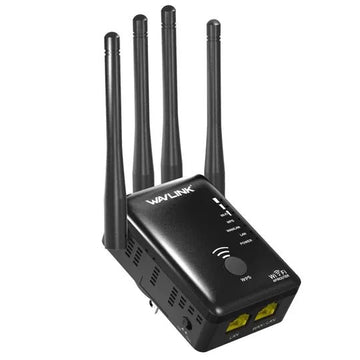Are Wifi Extenders Compatible with All Routers? Understanding Device Compatibility
In today's interconnected world, a strong and reliable Wifi connection is essential for both work and leisure. However, many users experience Wifi dead zones or weak signals in certain areas of their homes or offices. This is where Wifi extenders come into play, providing a solution to expand the coverage of your existing wireless network. But are Wifi extenders compatible with all routers? In this article, we will delve into the intricacies of device compatibility and help you understand how to choose the right Wifi extender for your setup.
The Basics of Wifi Extenders
Before we delve into the compatibility aspect, let's take a moment to explore the concept of a Wifi extender and its functionality. A Wifi extender, alternatively referred to as a range extender or repeater, is a device designed to enhance your current Wifi signal by amplifying it and extending its coverage to areas where the signal strength is weak or non-existent. It operates by receiving the wireless signal transmitted from your router and then rebroadcasting it, thereby effectively expanding the range of the network.
Compatibility Factors to Consider
When it comes to compatibility between Wifi extenders and routers, several factors come into play. Let's explore the key considerations to help you make an informed decision:
1. Wifi Standards
Wifi technology evolves over time, with new standards being introduced to enhance speed, range, and overall performance. The most common standards are 802.11n, 802.11ac, and the latest 802.11ax (also known as Wifi 6). It is crucial to ensure that your router and the Wifi extender you choose support the same Wifi standard for optimal compatibility. While newer Wifi extenders are typically backward compatible with older standards, it's always recommended to check the specifications before making a purchase.
2. Frequency Bands
Routers and Wifi boosters operate on different frequency bands: 2.4GHz and 5GHz. The 2.4GHz band provides broader coverage but at slower speeds, while the 5GHz band offers faster speeds but with a limited range. To ensure compatibility, your Wifi extender should support the same frequency band as your router. Most modern Wifi extenders are dual-band, meaning they can operate on both 2.4GHz and 5GHz bands, providing you with the flexibility to choose the best option for your specific needs.
3. Brand and Model
While compatibility primarily depends on the Wifi standards and frequency bands, it's worth noting that some routers and Wifi extenders from the same brand or series may offer improved compatibility due to optimized firmware and hardware integration. Therefore, if you already own a router from a particular brand, it might be worth considering a Wifi extender from the same brand to ensure seamless integration and compatibility.
4. Setup and Configuration
Compatibility also encompasses the setup and configuration process, which is crucial when using Wifi extenders. Typically, these devices offer a user-friendly installation procedure that entails connecting them to your existing network. It is essential to diligently follow the manufacturer's instructions to ensure a smooth and successful setup. Additionally, many Wifi extenders provide mobile apps or web-based interfaces that further simplify the configuration process, making it accessible to users of varying technical expertise. These intuitive interfaces contribute to a seamless experience, allowing users to customize settings and optimize their extended network effortlessly.
5. Additional Features and Performance
Before we delve into the compatibility aspect, let us briefly discuss the nature and functionality of a WiFi extender. A WiFi extender, also known as a range extender or repeater, is a device that enhances and expands the coverage of your existing WiFi signal. It operates by receiving the wireless signal from your router and then rebroadcasting it, effectively amplifying the signal and extending its reach to areas with weak or no coverage. This allows you to enjoy a stronger and more reliable WiFi connection in areas that were previously out of range. WiFi extenders are a convenient solution for improving the coverage and performance of your wireless network without the need for additional wiring or complicated setup procedures.
Conclusion
In conclusion, Wifi extenders can be valuable tools for extending the coverage and improving the signal strength of your wireless network. While compatibility is an essential aspect to consider, it's crucial to understand the various factors involved, such as Wifi standards, frequency bands, and brand compatibility. By carefully assessing these factors and selecting a Wifi extender that aligns with your router's specifications, you can significantly enhance your network's coverage and eliminate frustrating Wifi dead zones.e best possible solution for your network expansion.




